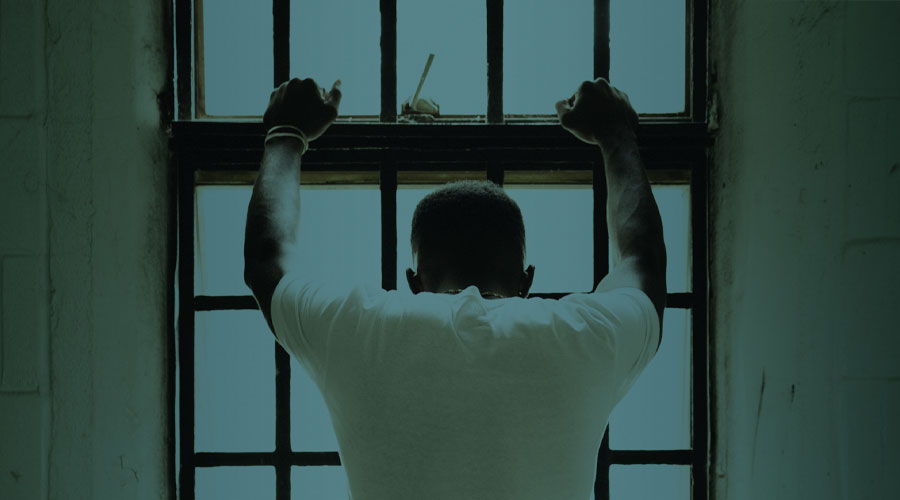Business founders, including CEOs of top companies around the globe, are taking a stand on social issues relevant to and reflective of social movements that demand the dismantling of systemic racism. In March, Richard Branson, founder of the Virgin Group, led a campaign calling for an international end to the death penalty. Joining Branson in signing the Business Leaders Against the Death Penalty Declaration, were 17 CEOs including Robert F. Smith, Founder, Chairman and CEO of Vista Equity Partners.
“There’s a famous saying that we’re all entitled to our own opinions, but not our own facts — and the objective facts tell us that the death penalty is inextricably tied to race in America,” Smith wrote in a statement included with his signature in the declaration. “The day we end the death penalty once and for all will be one day closer to social and economic justice for our country.”
Black people in the United States are overreprented on state death rows, whereas people who kill Black Amercians are less likely to face a death penalty as a result of their crime, according to a September 2020 report from the Death Penalty Information Center (DPIC). The report, “Enduring Injustice: the Persistence of Racial Discrimination in the U.S. Death Penalty, traces the history of death penalty from its roots in slavery and lynchings. The report highlights systemic racism in criminal court processes.
The CEO letter, which takes a more global stance, states: “[…] no issue is more intricately tied to the racial and socioeconomic biases that permeate justice systems than the death penalty. In many countries, ethnic minorities and the poor are still more likely to be prosecuted, sentenced to death, and ultimately executed. The abolition of capital punishment is a critical step in the movement toward racial and social equality.”
Data on Death Row’s Racial Makeup
- Approximately 42% of prisoners condemned to death in the justice system are African American, according to the DPIC report.
- This is contrasted by the U.S. Census data which shows 60% of the U.S. population self describe as white and 13% as Black.
- Researchers at the University of North Carolina at Chapel Hill and Georgetown University Law Center concluded in a 2015 review of 30 studies and 1369 executions from 1976 to 2013 that, “The single most reliable predictor of whether a defendant in the USA will be executed is the race of the victim.”
The 2021 declaration points out that beyond even the moral and ethical issues presented by legalized state killing of citizens, the death penalty system is costly and doesn’t contribute to a reduction in crime.
“[…] there is no credible evidence that the death penalty deters crime more effectively than long terms of imprisonment,” according to the American Civil Liberties Union.
REFORM Alliance Push for Parole Reform
Racial bias in death penalty convictions operates similarly to other problematic practices within the criminal justice system. REFORM Alliance, a nonprofit organization which works to transform criminal justice in the U.S., is actively transforming parole and probation into pathways to skills and community building. The group, whose founders include Jay-Z and Smith, came together following excessive charges brought against recording artist Meek Mill stemming from an incident where he popped a wheelie on his bicycle.
The implementation of probation and parole was supposed to guide those paying their debts to society back into the community and the workforce. Instead, it has come to serve as a barrier and inescapable system leading back to incarceration.
Often people are imprisoned, “not for committing new crimes, but often for things like showing up a few minutes late for an appointment or crossing city lines to pick up their child for school. They’ve become systems that prepare people for prison, not productivity,” according to REFORM Alliance.
To date, REFORM Alliance has positively impacted policy in Georgia, Virginia, Michigan, Louisiana and California. The successive legislative victories have resulted in a reduction of the probation population by putting time limits on length of parole.
Georgia, a state leader in the parole to prison pipeline, saw legislation passed in March by the state senate in favor of parole reform.
“These bipartisan, evidence-based reforms will create a uniform pathway to early probation termination, save money and increase public safety,” REFORM Alliance CEO Robert Rooks wrote following the passage of SB105, a bill clarifying pathways to early termination of parole and which aims to promote the use of existing incentives to shorten time on probation. The bill was signed into law on May 4 by Georgia Governor Brian Kemp.
Learn more about criminal justice reform and abolition with this list of educational resources.






